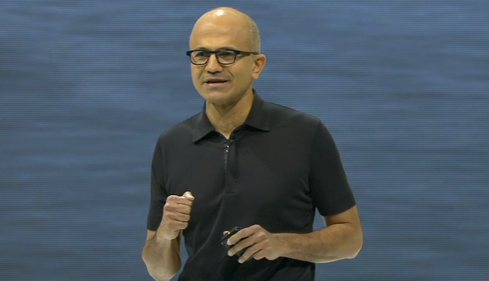Windows 10 Editions: Which One Is For You?
Microsoft will release different editions of Windows 10 for various devices and user types, from consumers to large enterprises.


Windows 10, HoloLens, Office: Microsoft Details Its Vision
Windows 10, HoloLens, Office: Microsoft Details Its Vision (Click image for larger view and slideshow.)
Since the start of this year, Microsoft has emphasized three ambitions critical to driving its future: enabling more personal computing, reinventing productivity, and building the intelligent cloud. All were central to the company's recent Ignite event in Chicago.
Microsoft's Windows 10, currently undergoing development, will address each of these goals. It's set to launch on PCs sometime this summer (we're thinking July) across 190 countries and in 111 languages.
One of the core tenets of Windows 10 is the support of more personal computing. The new OS will power a variety of devices, from mobile phones to the upcoming HoloLens. Microsoft has also noted that Windows 10 will drive the Internet of Things, supporting devices from heart rate monitors to ATMs.
[Microsoft Edge Browser Gets Security Boost]
Microsoft is developing Windows 10 to provide a similar experience across each of the many devices it powers. Universal Windows apps, which will have the same code base, will deliver a comfortable user experience whether the apps are running on smartphones or desktops. These apps will be available in a universal Windows Store, where customers can test and buy them.
To further its efforts in delivering more personal computing in Windows 10, Microsoft has announced that it will offer a variety of Windows 10 editions. Each version of Windows 10 will address the needs of specific categories of Microsoft customers, ranging from large businesses to consumers.
In a blog post published May 13, Tony Prophet, Microsoft's VP of Windows and search marketing, discusses the details of each upcoming Windows 10 edition. Here, we give you a quick look at some of the different iterations and see what each will bring to its unique audience:
Windows 10 Mobile: The mobile-friendly edition of Windows 10 will come optimized for use on more compact touchscreen devices, such as small tablets and smartphones. It will come packed with universal Windows apps like Mail, Calendar, Photos, Maps, Video, and Music. Business professionals on Windows Phone will be happy to learn about the security, productivity, and MDM features designed for office use. They'll also have access to the touch-optimized Office suite. Continuum for phone will let them project their smartphone screen onto a larger one.
Windows 10 Pro: This desktop iteration of Windows 10 is built for PCs, tablets, and hybrid devices, with extra features to address the needs of small businesses. The Pro edition helps employees leverage cloud technology, better manage devices and apps, safeguard enterprise data, and support remote and mobile productivity. Users will also have access to Windows Update for Business, which allows them more control over updating their devices, with lower management costs.
Windows 10 Enterprise: For medium and large organization, Enterprise brings advanced security capabilities to protect against threats to devices, identities, apps, and corporate data. This edition also offers more options for deploying and managing Windows 10 across a larger user pool. Enterprise will be available to Microsoft's Volume Licensing customers, so they can download new feature and security updates as needed. IT professionals can choose how they adopt new technology by opting to use the Windows Update for Business or the Long Term Servicing Plan, which is a deployment option for mission-critical devices and workspaces.
Windows 10 Mobile Enterprise: The enterprise-specific edition of Windows 10 Mobile will also be available for Volume Licensing customers. In addition to the productivity, security, and MDM capabilities in Windows 10 Mobile, it will offer more flexibility in terms of managing updates for business. It will also deliver security and feature updates as they become available.
Windows 10 Home: The consumer-focused desktop version brings a more personal touch to productivity. Home will bring Cortana, Microsoft Edge, Continuum tablet mode, Windows Hello biometric login software, and the Universal apps in Windows 10 Pro.
As Microsoft announced earlier this year, the full versions of Windows 10 Home, Mobile, and Pro will be available as free upgrades to customers running Windows 7, 8.1, and Windows Phone 8.1. This promotion will be available for the first year after Windows 10 is released. As Microsoft also noted, "once you upgrade, you have Windows 10 for free on that device."
[Did you miss any of the InformationWeek conference in Las Vegas last month? Don't worry: We have you covered. Check out what our speakers had to say and see tweets from the show. Let's keep the conversation going.]
About the Author
You May Also Like






